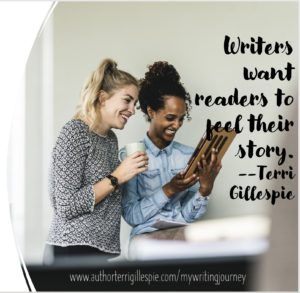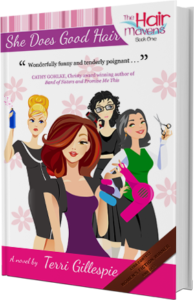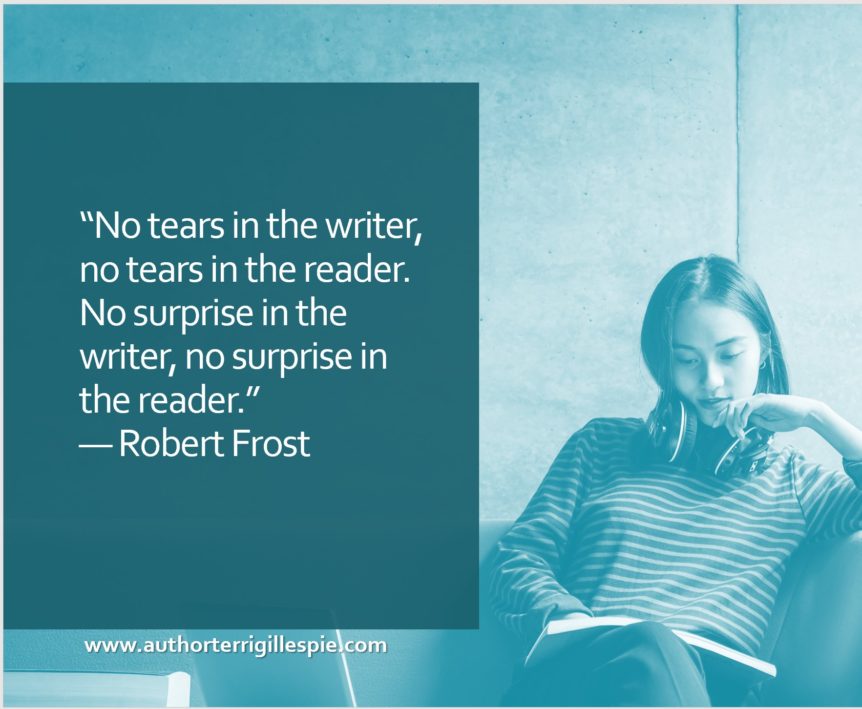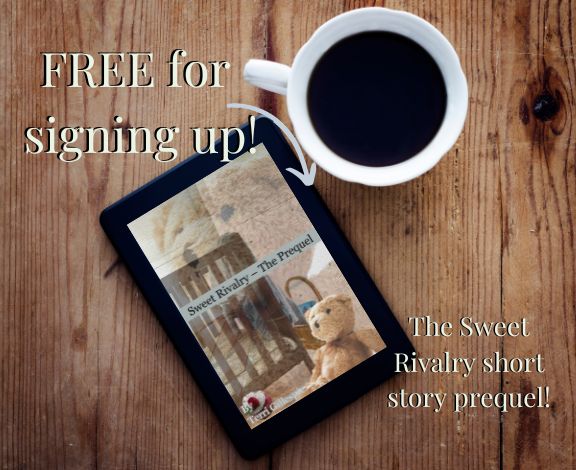Do Writers Cry or Laugh When They Write?
 The first time a reader asked me if I cry or laugh when I write scenes in my books, I was embarrassed. Why? Because I do. Sometimes I’m a mess. Isn’t that weird? I mean, aren’t these characters just imaginary people?
The first time a reader asked me if I cry or laugh when I write scenes in my books, I was embarrassed. Why? Because I do. Sometimes I’m a mess. Isn’t that weird? I mean, aren’t these characters just imaginary people?
Yes. And no.
Have you ever read a book where you felt no connection with the characters? More than likely, it is because the writer didn’t have an emotional connection with them. The people in their story were little more than stick figures acting out a plot.
I have to know my characters. Readers, in most cases, won’t know all my characters’ backstories, but they will see the fruits of the seeds sown in their childhood — good and bad.
So, yes, I cry when I write about a character’s death or laugh when a character experiences one of life’s embarrassing or funny moments. Why? Because once a character is “birthed” into my heart and imagination, I love them. I get to know them. And more than anything, I want readers to love and connect with them too.
What about the “Bad” Guys?
What about the antagonists — you know, the bad guy? Do I love them? I have to. Even if they are misbehaving, there’s a reason their behavior is this way. That helps me have sympathy for them because of their past, and makes the character real, not just a stereotypical bad guy or gal.
In my first novel, She Does Good Hair (Book 1 of The Hair Mavens trilogy), the main antagonist was Harriet. She was pretty nasty to the protagonist, Shira. In turn, Shira was pretty nasty to Harriet. Some of the shenanigans were funny, other times, mean-girl mean. But, they both had secrets and hurts and a heartbreaking past that drove those emotions.
protagonist, Shira. In turn, Shira was pretty nasty to Harriet. Some of the shenanigans were funny, other times, mean-girl mean. But, they both had secrets and hurts and a heartbreaking past that drove those emotions.
My passion is God’s redemption. Even for the most unlovable of characters — or people. I get excited and cry when the story ends with the antagonist being redeemed. When the antagonist loses their way and won’t receive the loving mercy of God, then I cry, too.
A New Reader’s Story
The only way I have a chance that a reader will do more than turn pages and forget the story once they close the cover, is if they feel the story. Identify with the story — even if it is just in part.
The other day I was contacted by a new reader who read She Does Good Hair. As she shared her love of the book and characters, she said she wept. Recently her sister died, and she said the redemption part of the one of the characters comforted her in her grief. The funny scenes made her laugh, too. She said she couldn’t stop thinking about the ladies in the book. (Fortunately, she had purchased the other two books and had dived into the second book.)
It is every author’s hope for their readers to close the cover and remember the emotions and lessons from those characters. As though they had spent a day with them, opening their hearts to one another. Whether those emotions are couched in humor, sadness, suspense, romance, or mystery, we want our readers to know we care enough about them to care enough about how we write those stories.



